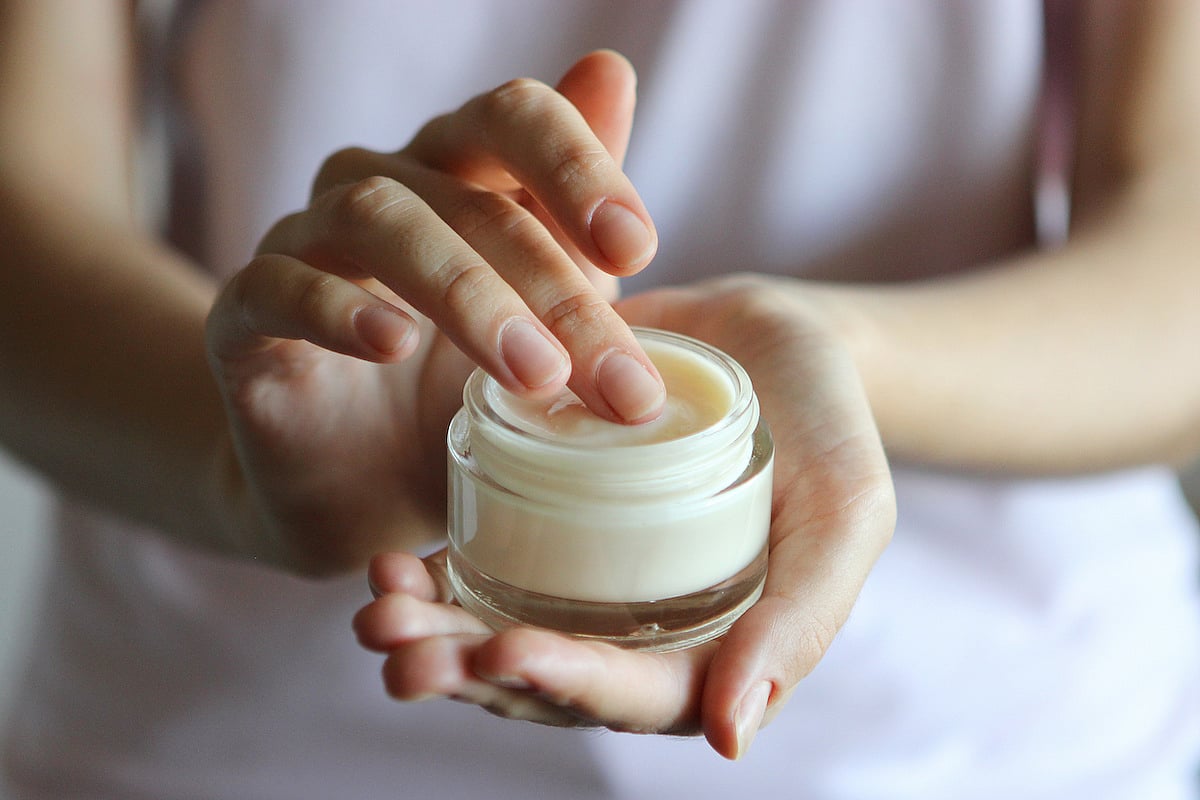Get Healthy!
Results for search "Sunburn / Tan".
Health News Results - 20
Most folks know that a good sunscreen can guard against the sun's harmful rays, but many might not realize that some medications and creams can undo some of that protection.
“There are multiple reasons we should be mindful of excessive sun exposure aside from skin cancer, although that’s certainly important,†said Dr...
- HealthDay Reporter
- Robin Foster
- |
- August 10, 2024
- |
- Full Page
Roughly 20% of Americans are diagnosed with skin cancer at some point in their lives, but it's not inevitable.
Skin cancer is not only the most common cancer, it's also the most preventable. Most of the time, too much sun exposure is to blame.
"When it comes to skin cancer, prevention is key," surgical oncologist Dr. Jeffrey Farma...
- HealthDay Reporter
- Carole Tanzer Miller
- |
- July 14, 2024
- |
- Full Page
As millions of Americans grapple with blistering heat this summer, the Biden Administration on Tuesday proposed a new rule to address excessive heat in the workplace.
If the first major federal safety standard of its kind becomes final, the
Memorial Day means firing up that backyard grill for the season, hopefully under warm, sunny skies.
You can be sure to enjoy the day without hazards by taking a few simple precautions, said Dr. Mike Ren, an associate professor of family and community medicine at Baylor College of Medicine in Houston.
Watch...
- HealthDay Reporter
- Ernie Mundell
- |
- May 26, 2024
- |
- Full Page
Brianna Starr, 29, didn't think twice about sunbathing without sunscreen, hoping to get a golden tan that to many connotes health and beauty.
But when her sister was diagnosed with melanoma at the age of 19, she got serious about protecting her skin health, says
It's already known that the "healthy glow"of a tan actually represents damage to skin cells.
But a new study of people on vacation has found that sunbathing also can disrupt the skin's microbiome, altering the populations of bacteria that live on the skin in ways that could be harmful to health.
The microbiome recovers within a month, but during that time a person will be more vulne...
- HealthDay Reporter
- Dennis Thompson
- |
- August 9, 2023
- |
- Full Page
Golfing may be a great way to get outdoors and enjoy the pleasures of a classic summer pastime. But a new study warns that walking the greens for hours on end without adequate sun protection may notably increase the risk for skin cancer.
Researchers in Australia found that more than one-quarter of golfers in that country have been diagnosed with skin cancer at some point, making Auss...
- HealthDay Reporter
- Alan Mozes
- |
- August 3, 2023
- |
- Full Page
Your body needs vitamin D, the "sunshine" vitamin, but too much time in the sun can increase your risk for skin cancer.
An expert offers tips for boosting vitamin D intake while staying safe from the sun and this summer's record-high temperatures.
"Vitamin D is important for bone health, calcium absorption, reduction of inflammation, promoting cell growth and immune and cardiovascu...
- HealthDay Reporter
- Cara Murez
- |
- July 21, 2023
- |
- Full Page
Dermatologist Dr. Caroline Opene is often asked if certain types of sun blocks are better for people with darker skin.
Not necessarily, says the director of the University of California, Los Angeles (UCLA) Health Skin of Color clinic.
"In general, the best sunscreen is the one you put on c...
- HealthDay Reporter
- Cara Murez
- |
- July 16, 2023
- |
- Full Page
People are using "browning lotions"to tan quickly, but experts are questioning the safety of this trend driven by social media influencers.
Browning lotions work with the sun's UV rays to darken skin faster.
"It is important to know that a tan is never considered to be healthy and exposure to UVA and UVB radiation can cause skin cancer, that's the first issue I have,"said dermatolog...
- HealthDay Reporter
- Cara Murez
- |
- July 5, 2023
- |
- Full Page
Enjoy that summer sun, but keep some safety tips in mind, the American Academy of Pediatrics (AAP) advises parents.
"It's great to see children enjoying nature and reaping the benefits of outdoor activities,"Atlanta-based pediatrician Dr. Rebecca Philipsborn said in an AAP news re...
- HealthDay Reporter
- Cara Murez
- |
- June 29, 2023
- |
- Full Page
Summer's here and the Mayo Clinic says babies need protection from the sun's damaging UV rays, too.
It only takes one severe sunburn during childhood or adolescence to nearly double the risk for a deadly melanoma later in life, according to the American Academy of Dermatology Association.
Babies are far more vulnerable to sunburn than older kids, so it's essential to protect them ag...
- HealthDay Reporter
- Steven Reinberg
- |
- June 25, 2023
- |
- Full Page
It's easy to keep your skin safer in the summer sun if you have the right sunscreen.
UCLA Health offers some tips for picking the best type and SPF level.
Getting sunburned just five times in a lifetime doubles the risk of getting melanoma, the most serious skin cancer, so making sure you're protected is worth the effort, the experts at
You might think everyone knows by now to protect against the sun's rays, but many Gen Zers apparently haven't gotten the message.
In a recent survey of 1,000 U.S. adults by the American Academy of Dermatology, many of these 18- to 25-year-olds were unaware of the risks from tanning.
About 60% of Gen Z respondents sai...
- HealthDay Reporter
- Cara Murez
- |
- July 6, 2022
- |
- Full Page
Newer sunscreens that can match your skin tone may encourage more people to use sunscreen, an expert says.
"The lighter a person's skin, the higher their risk for skin cancer," said Dr. Henry Lim, former chair of dermatology at Henry Ford Hospital in Detroit. "While people with darker skin have a lower risk for s...
- HealthDay Reporter
- Robert Preidt
- |
- April 2, 2022
- |
- Full Page
Children at risk for multiple sclerosis (MS) might find some protection from the disease by spending more time in the sun, a small study suggests.
Although MS is rare in children and young adults, those with relatives who have the condition have increased odds of developing the disease early. Exposure to sunlight may cut their risk in half, researchers say.
"In families where there'...
- HealthDay Reporter
- Steven Reinberg
- |
- December 9, 2021
- |
- Full Page
Most people know that sun-sourced vitamin D is good for their bones. So could avoiding the sun to reduce skin cancer risk weaken your bones?
A new study brings a reassuring answer: "Sun-protective" behavior -- wearing long sleeves, seeking shade or using sunscreen -- "was not associated with decreased bone mineral density or increased risk of osteoporotic fracture," the researchers conclu...
- HealthDay Reporter
- Ernie Mundell
- |
- November 18, 2021
- |
- Full Page
Caring for a baby's delicate skin, hair and nails can be intimidating, but five simple steps can make it easier, according to an expert from the American Academy of Dermatology.
"With their tiny hands and feet, babies can seem so fragile and vulnerable," said dermatologist Dr. Kachiu Lee. "However, babies are more resilient than you might think, and parents can maintain good hygiene for t...
- HealthDay Reporter
- |
- October 31, 2021
- |
- Full Page
If you're at the beach or pool, applying sunscreen before and after you've been in the water is a must, a cancer specialist says.
The intensity of exposure to harmful ultraviolet (UV) rays "is higher under water than it is above water," said Dr. Arun Mavanur. He is a surgical oncologist at the Alvin & Lois Lapidus Cancer Institute at LifeBridge Health, in Baltimore.
"UV rays also ar...
- HealthDay Reporter
- Robert Preidt
- |
- August 27, 2021
- |
- Full Page
When a suspicious skin lesion sends you scurrying to a dermatologist, asking for a full-body skin check could save your life.
Dermatologists are twice as likely to find skin cancer with a full-body check, a new study reveals. More than half of the skin cancers discovered were not in the location the patient was concerned about.
"If the dermatologist did not check their entire body,...
- HealthDay Reporter
- Cara Murez
- |
- August 11, 2021
- |
- Full Page


















